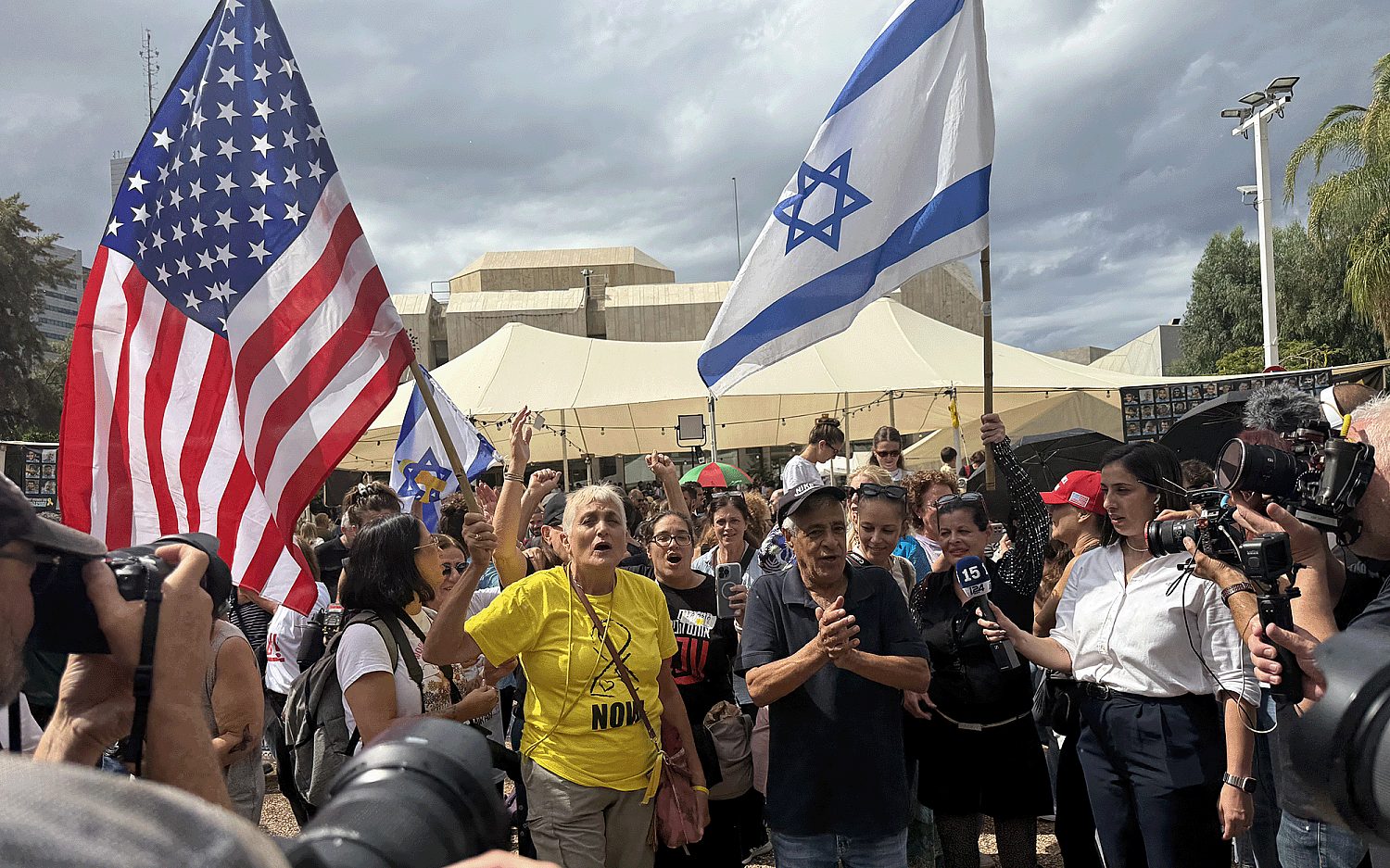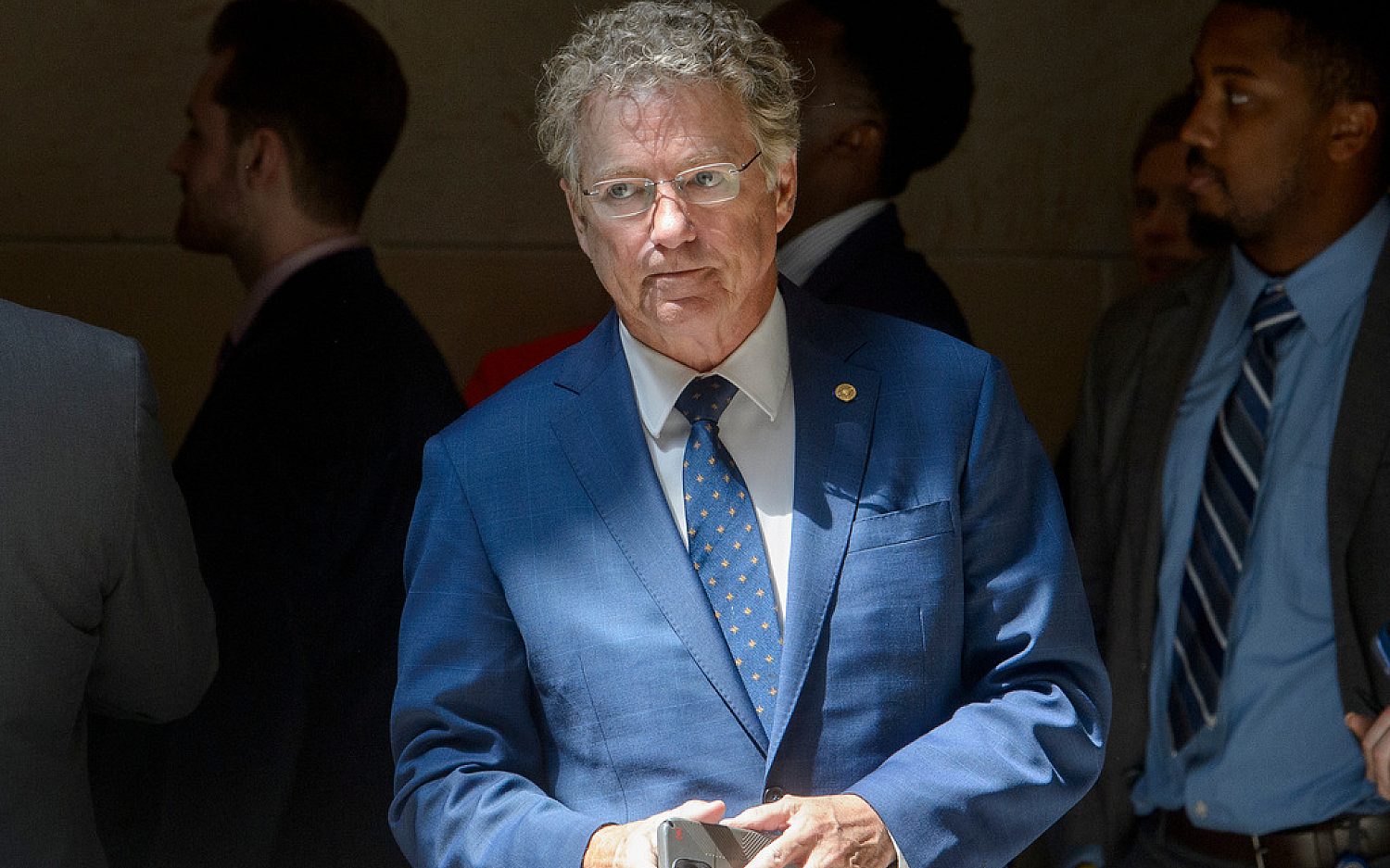Senate finds little comfort in sanctuary cities?
Critics, supporters speak at emotional Senate hearing to consider consequences of local immigration policies
WASHINGTON—On July 1, Jim Steinle was walking with his adult daughter on San Francisco’s Pier 14 when he heard a gunshot.
“Dad, help me,” Kathryn Steinle said as she fell to the ground.
Those were the last words Steinle ever heard from his 32-year-old daughter. She died two hours later at a local hospital, the victim of an apparently random shooting by an illegal immigrant who had been deported five times.
On Thursday, less than three weeks after the shooting, Steinle recounted his story in emotional testimony before the Senate Judiciary Committee. He urged federal and local authorities to stop releasing illegal immigrants who are convicted felons.
“Some legislation should be discussed, enacted and/or changed to take these undocumented immigrant felons off our streets for good,” Steinle said, noting his daughter’s killer, Juan Francisco Lopez-Sanchez, had seven felony convictions when he was released from the San Francisco County Jail on April 15.
Kathryn Steinle’s murder ignited a national debate over so-called sanctuary cities, some 200 local jurisdictions—including San Francisco—that have declined to cooperate with federal deportation efforts. Although local policies vary, in general they mean local authorities do not honor “detainers” Immigration and Customs Enforcement (ICE) officials place on jailed immigrants.
In the San Francisco case, the sheriff’s office not only refused to hold Lopez-Sanchez, but it refused to notify ICE of the date and time he would be released. Sen. Dianne Feinstein, D-Calif., said the sheriff went beyond the city’s ordinance and implemented his own policy, citing a March memo to that effect.
“A simple phone call would have been enough,” she said. “But that did not happen.”
Members of both parties agreed communication should be mandatory. Feinstein said she is working with other members to require local law enforcement to provide ICE the date and time of an illegal immigrant felon’s release.
Republicans pushed for more drastic measures. Sen. Chuck Grassley, R-Iowa, chairman of the committee, announced he would introduce a bill to create a mandatory five-year prison sentence for any person who re-enters the U.S. after deportation. The legislation also would withdraw certain federal funding for local governments that refuse to cooperate in transferring immigrants who are convicted felons.
Thomas Manger, president of Major Cities Chiefs Association, pushed back against the defunding idea, saying the action would punish the public at large. He agreed local jurisdictions should be cooperative in communication, “but it is wrong to demand that we engage in matters that relate solely to immigration status,” he said. “Surely the committee recognizes that withholding federal funds to coerce performance of federal duties by local police is not why [federal assistance] programs were established.”
In the first nine months of 2014, government data show 8,811 declined detainers spread across 276 counties. More than 1,800 were later re-arrested for separate offenses.
Local law enforcement entities argue sanctuary cities boost local crime prevention. If local police jail immigrants solely because of their immigration status, many crimes will go unreported, said witness Grace Huang with the Washington State Coalition Against Domestic Violence. She told the committee about a sexually assaulted 5-year-old girl whose undocumented family was too scared to report the crime. A year later the perpetrator abused another child.
ICE Director Sarah Saldaña floated the idea that mandatory detainers might not even be legal, citing a 2014 Oregon court ruling against them. She said under the administration’s new Priority Enforcement Program (PEP), ICE has identified the 49 most important uncooperative jurisdictions, and “33 have already agreed to work with us.”
Sen. David Vitter, R-La., who since 2008 has pushed legislation to defund sanctuary cities, said the administration has done “absolutely nothing” to deter local jurisdictions from implementing noncooperation policies. He pressed Saldaña on what negative consequences would be appropriate for cities that refuse to cooperate, but she declined to cite specifics.
Gabriel Salguero, president of the National Latino Evangelical Coalition, urged the committee not to politicize the deaths of those who fell victim to “senseless violence.” He said Congress should work toward reforming the entire immigration system: “As we continue to mourn and pray, let’s work together to find solutions that promote peace and security, not fear and collective punishment.”
An actual newsletter worth subscribing to instead of just a collection of links. —Adam
Sign up to receive The Sift email newsletter each weekday morning for the latest headlines from WORLD’s breaking news team.





Please wait while we load the latest comments...
Comments
Please register, subscribe, or log in to comment on this article.